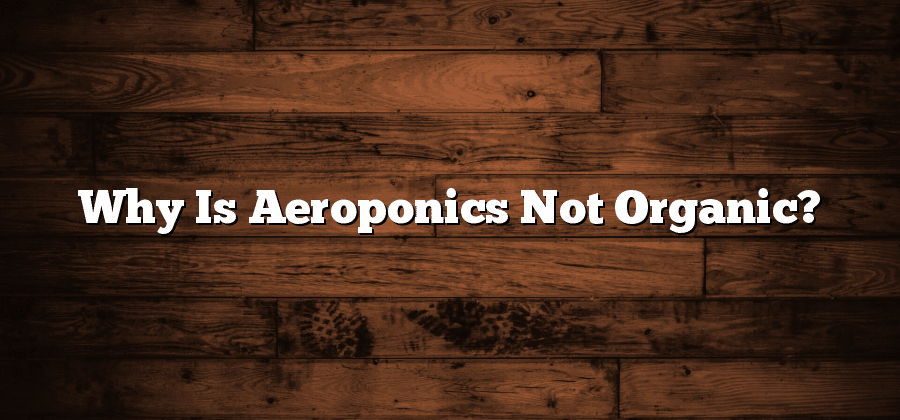The Definition of Organic Agriculture
Organic agriculture refers to a method of farming that prioritizes the use of natural means to grow crops and raise livestock. It focuses on minimizing synthetic inputs such as chemical fertilizers, pesticides, and genetically modified organisms (GMOs). Instead, organic farmers rely on building healthy, enriched soil, crop rotation, and alternative pest management strategies.
This type of agriculture places a strong emphasis on sustainable practices and the preservation of biodiversity. Farmers working within the principles of organic agriculture strive to work with nature rather than against it. They aim to create a closed-loop system where resources are recycled, waste is reduced, and the overall ecosystem is respected. The organic farming movement has gained significant momentum in recent years, with consumers increasingly recognizing the importance of food that is free from synthetic chemicals and produced in an environmentally friendly manner.
The Principles of Organic Farming
In the realm of sustainable agriculture, organic farming stands tall as a beacon of environmental responsibility and ethical practices. The principles that guide this method of cultivation are rooted in the belief that the health of the soil, plants, animals, and the larger ecosystem are interconnected. Organic farming emphasizes the use of natural, non-synthetic inputs, such as compost, cover crops, and beneficial insects, while avoiding the use of chemical fertilizers, pesticides, and genetically modified organisms. It also promotes biodiversity by encouraging crop rotation, polycultures, and the preservation of natural habitats on farms. By adhering to these principles, organic farmers strive to nourish the soil, protect the environment, and produce nutritious, high-quality food for consumers, without compromising the well-being of future generations.
One key principle of organic farming is the promotion of soil health. Organic farmers understand the importance of building and maintaining soil fertility through organic matter, such as compost and cover crops. By enriching the soil with organic matter, farmers enhance its nutrient content, water-holding capacity, and structure. This practice enables crops to access nutrients more efficiently, reduces the risk of soil erosion, and enhances the soil’s ability to sequester carbon. Moreover, healthy soil supports a vibrant community of microorganisms, including beneficial bacteria and fungi, which play a crucial role in nutrient cycling and disease suppression. Thus, by prioritizing soil health, organic farming aims to create a harmonious relationship between plants, soil, and the broader ecosystem, ultimately leading to sustainable and resilient agricultural systems.
Understanding Aeroponics in Agriculture
Aeroponics is a modern agricultural technique that has gained significant popularity in recent years. Unlike traditional methods that rely on soil as a growing medium, aeroponics cultivates plants without the need for soil. Instead, plant roots are suspended in a nutrient-rich mist, allowing them to absorb water, oxygen, and essential nutrients directly.
In aeroponics, plants are usually grown in containers or specially designed structures, known as aeroponic systems. These systems use a combination of misting nozzles, pumps, and timers to deliver a fine mist of nutrients to the plant roots at regular intervals. This misting process provides the plants with an optimal balance of moisture, nutrients, and oxygen, promoting their healthy growth and development. Unlike traditional farming methods, which can be limited by factors such as soil quality and space constraints, aeroponics offers a highly efficient and space-saving solution for cultivating a wide range of crops.
Key Differences Between Aeroponics and Organic Farming
Aeroponics and organic farming are two distinct methods of agricultural production, each with its own set of unique characteristics and practices. First and foremost, one key difference between the two lies in the way plants are cultivated. In organic farming, plants are grown in soil, taking advantage of the natural ecosystem and nutrient cycling. On the other hand, aeroponics is a soilless method that utilizes a misting system to deliver water and nutrients directly to plant roots.
Another notable difference lies in the use of synthetic inputs. In organic farming, the use of synthetic pesticides and fertilizers is strictly prohibited. Instead, organic farmers rely on natural, organic alternatives to manage pests and enhance soil fertility. Conversely, aeroponics allows for precise control over the nutrient solution sprayed onto plant roots, which may involve the use of synthetic fertilizers. This distinction raises discussions regarding sustainability and the potential impact on the overall environmental footprint of each method.
The Role of Soil in Organic Farming
Soil plays a crucial role in organic farming, serving as the foundation for the entire agricultural system. In organic farming practices, the soil is treated as a living entity, acknowledging its complex ecosystem and the essential role it plays in supporting plant growth and overall sustainability. Organic farmers prioritize the health and fertility of the soil, recognizing that healthy soil leads to healthy plants, which in turn contribute to a healthier environment and community.
One of the key principles of organic farming is building and maintaining fertile soil through natural means. Instead of relying on synthetic fertilizers and chemical pesticides, organic farmers focus on improving and nourishing the soil through organic matter, such as compost, manure, and cover crops. By using natural soil amendments, organic farmers replenish nutrients, improve soil structure, and enhance beneficial microbial activity in the soil, ultimately promoting a balanced and diverse ecosystem. This approach not only protects the environment by minimizing pollution and soil erosion, but also enhances the soil’s ability to retain water and important nutrients, ensuring long-term soil health and sustainable agricultural production.






